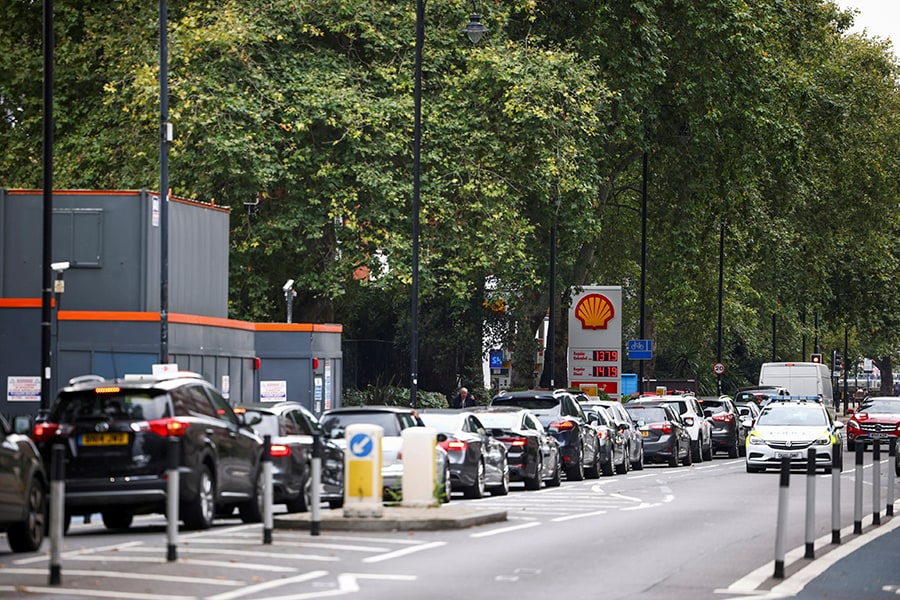
As gas stations run dry, Britons cope with disruptions to daily life
The fuel supplies Britons once took for granted are vanishing, and lines of vehicles are clogging the streets near gas stations while some businesses that depend on fuel are suddenly at a standstill
 Vehicles queue to refill outside a Shell fuel station in central London, Britain, September 26, 2021.
Vehicles queue to refill outside a Shell fuel station in central London, Britain, September 26, 2021.
Image: Henry Nicholls / Reuters
In the northern English town of Baildon, Jag Sanghera took the train to work instead of driving, saving fuel needed to drive his daughter to nursery school. In west London, Laid Ibrahim, an Uber driver, tried at least seven gas stations before finding one open at 2 a.m. and waiting in line for 80 minutes. Across the city, Nick Day said the private ambulance service he works for was forced to cut the number of its vehicles on the road from six to four.
As the government tried to calm an anxious nation Monday, gas stations across Britain continued to run dry and thousands of Britons found their lives upended.
Officials said there was no shortage of fuel and blamed the problems on panic buying. But analysts said the real cause of the chaos is a chronic shortage of truck drivers to deliver fuel to gas stations, and the government late Monday said it was putting a limited number of military tanker drivers on standby to be deployed if necessary.
Whatever the cause, the fuel supplies Britons once took for granted were vanishing, lines of vehicles clogged the streets near gas stations and some businesses that depend on fuel were suddenly at a standstill.
©2019 New York Times News Service







